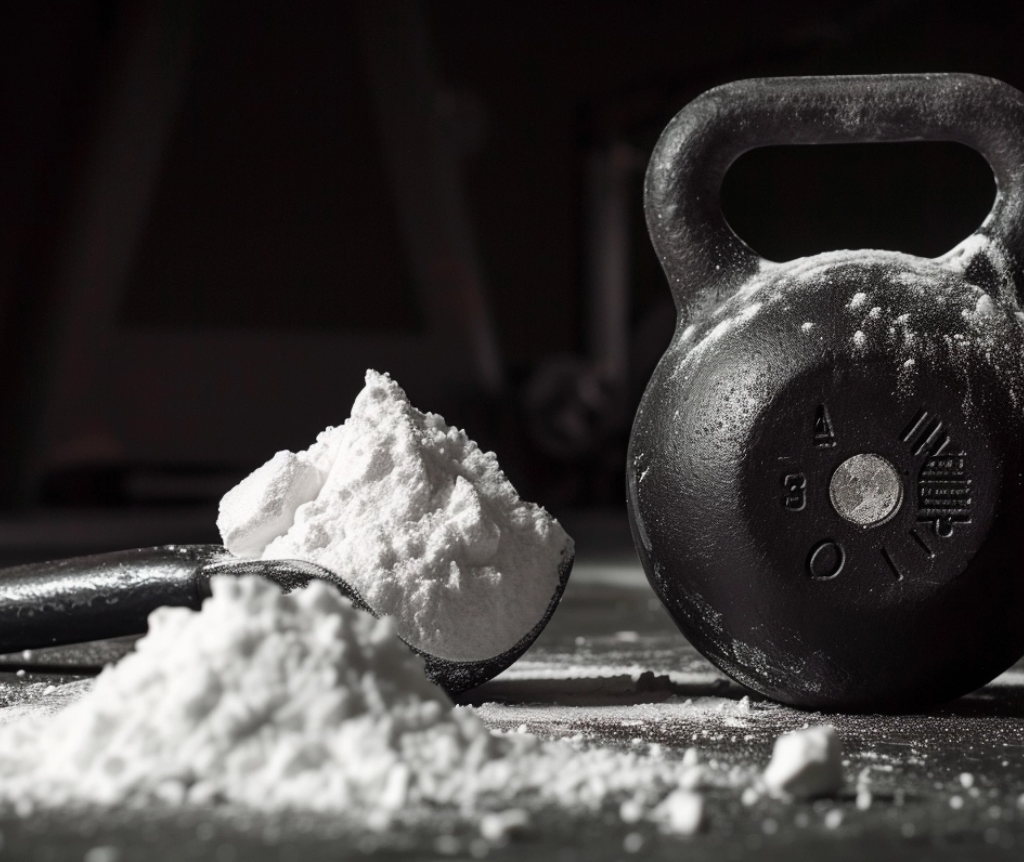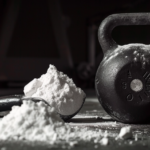Creatine, a popular supplement among athletes and fitness enthusiasts, is often surrounded by questions and misconceptions. One common concern is whether creatine causes constipation. Let’s delve into the science and separate fact from fiction.
What is creatine?
Creatine is a naturally occurring compound found in small amounts in foods like meat and fish, and it is also produced by the body. It plays a crucial role in providing energy to muscles during high-intensity exercise or activities. Creatine is stored in muscles and converted into phosphocreatine, which acts as a rapid source of energy for muscle contractions.
Many athletes and fitness enthusiasts use creatine supplements to enhance athletic performance, improve strength, and increase muscle mass. Research suggests that creatine supplementation may also benefit cognitive function and overall health. However, it’s essential to consult with a healthcare professional before starting any supplement regimen, especially if you have underlying health conditions or are taking medication.
How does creatine work biologically?
Creatine works biologically by increasing the availability of phosphocreatine in muscle cells, which serves as a rapid source of energy during high-intensity activities. Here’s how it works:
- Phosphocreatine Reserves: When you consume creatine through diet or supplementation, it is absorbed into the bloodstream and transported to muscle cells. Inside the muscle cells, creatine is converted into phosphocreatine through a series of biochemical reactions.
- Energy Production: During intense physical activity, such as weightlifting or sprinting, the muscles require a rapid supply of energy to fuel muscle contractions. Phosphocreatine plays a crucial role in this process by donating phosphate groups to regenerate adenosine triphosphate (ATP), the primary energy currency of cells.
- ATP Regeneration: ATP provides the energy needed for muscle contractions, but its supply is limited and quickly depleted during high-intensity exercise. Phosphocreatine helps regenerate ATP from adenosine diphosphate (ADP) by donating phosphate groups, allowing the muscles to sustain energy production and maintain performance during short bursts of intense activity.
- Delayed Fatigue: By increasing the availability of phosphocreatine, creatine supplementation can delay fatigue and improve exercise performance, particularly during activities that involve short, explosive bursts of energy, such as weightlifting or sprinting.
- Replenishing PCr: During rest periods, your body uses energy from your diet to resynthesize PCr from creatine, ensuring it’s prepared for the next demand for energy.
Overall, creatine supplementation helps increase your muscle cells’ PCr stores, allowing for faster ATP regeneration and potentially improved performance during short bursts of high-intensity exercise. However, it’s important to remember that creatine’s effectiveness can vary depending on factors like your training regimen and individual response.
Here are some additional points to consider: - While creatine can enhance performance in some activities, it's not a magic bullet. It works best in conjunction with proper training and nutrition. - Creatine is generally safe for most healthy adults in recommended dosages. However, it's crucial to consult a healthcare professional before starting any new supplements, especially if you have any pre-existing health conditions.
What Are The Common Side Effects of Creatine?
Creatine is generally considered safe for most healthy adults when taken in appropriate doses. However, like any supplement, it can cause some side effects, although they are usually mild and temporary. Here are the common side effects of creatine:
Weight gain: Creatine draws water into your muscle cells, which can lead to a slight increase in body weight. This is not due to fat gain but rather water retention.
Stomach upset: Some people experience nausea, diarrhea, or stomach cramps, especially when starting creatine or taking high doses without proper hydration.
Muscle cramps: Creatine may slightly increase the risk of muscle cramps, particularly if you’re not adequately hydrated or don’t properly warm up and cool down before and after exercise.
Dehydration: Creatine pulls water into your muscles, so it’s crucial to stay well-hydrated when taking it to prevent dehydration.
Kidney and liver problems: While rare, some studies suggest a potential risk for kidney and liver problems with long-term, high-dose creatine use. However, more research is needed to confirm this.
High blood pressure: Some studies suggest a possible link between creatine use and increased blood pressure. However, the evidence is inconclusive, and more research is needed.
Does Creatine Cause Constipation?
Creatine supplementation is generally safe and well-tolerated by most individuals, but in some cases, it may lead to gastrointestinal discomfort, including constipation. Here’s a deeper explanation of how creatine may cause constipation:
1. Dehydration: One potential reason creatine supplementation may lead to constipation is dehydration. Creatine has been shown to increase the body’s demand for water, especially during the loading phase or when taken in high doses. If an individual does not consume enough fluids while taking creatine supplements, it can result in dehydration, which can contribute to constipation.
2. Changes in Fluid Balance: Creatine supplementation can cause temporary water retention within muscle cells, which is one of the mechanisms behind its performance-enhancing effects. However, this increased water retention can alter fluid balance in the body, potentially affecting gastrointestinal function. Changes in fluid balance may slow down the movement of stool through the digestive tract, leading to constipation.
3. Decreased Gastrointestinal Motility: Some individuals may experience a decrease in gastrointestinal motility while taking creatine supplements. Reduced motility can result in slower transit times for food and waste through the digestive system, which can contribute to constipation.
4. Individual Variability: It’s important to note that not everyone who takes creatine will experience constipation. Individual factors such as genetics, diet, hydration status, and overall gastrointestinal health can influence how a person responds to creatine supplementation. Some individuals may be more prone to constipation due to pre-existing conditions or other factors.
To minimize the risk of constipation while taking creatine supplements, it’s essential to:
– Stay hydrated by drinking plenty of water throughout the day.
– Avoid excessive doses of creatine, especially during the loading phase.
– Consume creatine supplements with meals to aid absorption and reduce gastrointestinal discomfort.
– Gradually increase dosage over time to allow the body to adjust.
– Consider alternative forms of creatine or lower doses if constipation persists or becomes bothersome.
If constipation persists or is severe, it’s important to consult with a healthcare professional. They can help determine the underlying cause of constipation and provide guidance on managing symptoms while continuing creatine supplementation or adjusting the regimen if necessary.
Ways To Avoid Constipation while taking creatine?
While creatine itself isn’t definitively linked to constipation in scientific studies, some individuals might experience digestive issues when starting creatine or due to other factors. Here are some ways to help prevent constipation while taking creatine:
1. Stay Hydrated:
This is crucial regardless of creatine use, but even more important when taking it. Creatine draws water into your muscles, so drinking plenty of water throughout the day helps prevent dehydration and potential constipation. Aim for 8-10 glasses of water daily or adjust based on your individual needs and activity level.
2. Increase Fiber Intake:
Fiber adds bulk to your stool and promotes regular bowel movements. Aim to consume 22-34 grams of fiber daily through fruits, vegetables, whole grains, legumes, and nuts. You can also consider fiber supplements if you struggle to meet your daily needs through diet alone.
3. Establish a Regular Bathroom Routine:
Responding to the urge to have a bowel movement and creating a consistent bathroom schedule can help regulate your digestive system and prevent constipation.
4. Exercise Regularly:
Physical activity can help stimulate your digestive system and promote regularity. Aim for at least 30 minutes of moderate-intensity exercise most days of the week.
5. Consider Probiotics:
Probiotics are live bacteria that can benefit your gut health and potentially aid digestion. While research on probiotics and constipation is ongoing, they might be helpful for some individuals. Consult your doctor before starting any new supplements, including probiotics.
Can you take creatine on an empty stomach?
Yes, you can take creatine on an empty stomach, but it’s generally recommended to take it with food to minimize potential gastrointestinal discomfort.
How do I stop creatine bloating?
To stop creatine bloating, try reducing your dosage, staying hydrated, and taking it with plenty of water or a meal to aid digestion.
How to stop stomach pain from creatine?
To alleviate stomach pain from creatine, consider reducing your dosage, taking it with food, and ensuring you’re adequately hydrated.
Is Creatine Worth the Side Effects?
The benefits of creatine often outweigh potential side effects for many individuals, but it’s essential to weigh the risks and benefits based on individual needs and goals.
Does Creatine Make You Gain Weight?
Yes, creatine may cause temporary weight gain due to water retention in muscle cells, but it’s not typically associated with fat gain.







